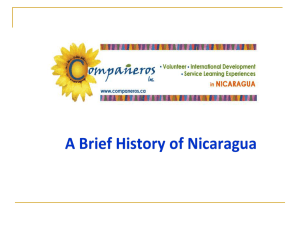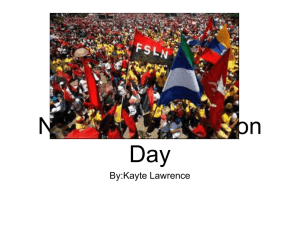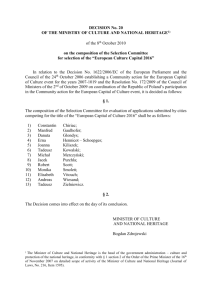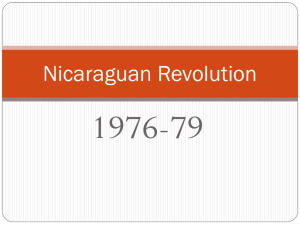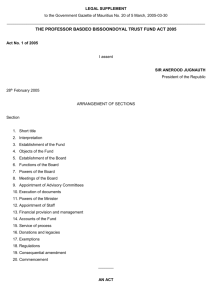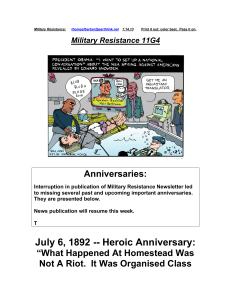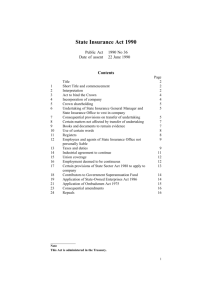Biography - Organization of American States
advertisement
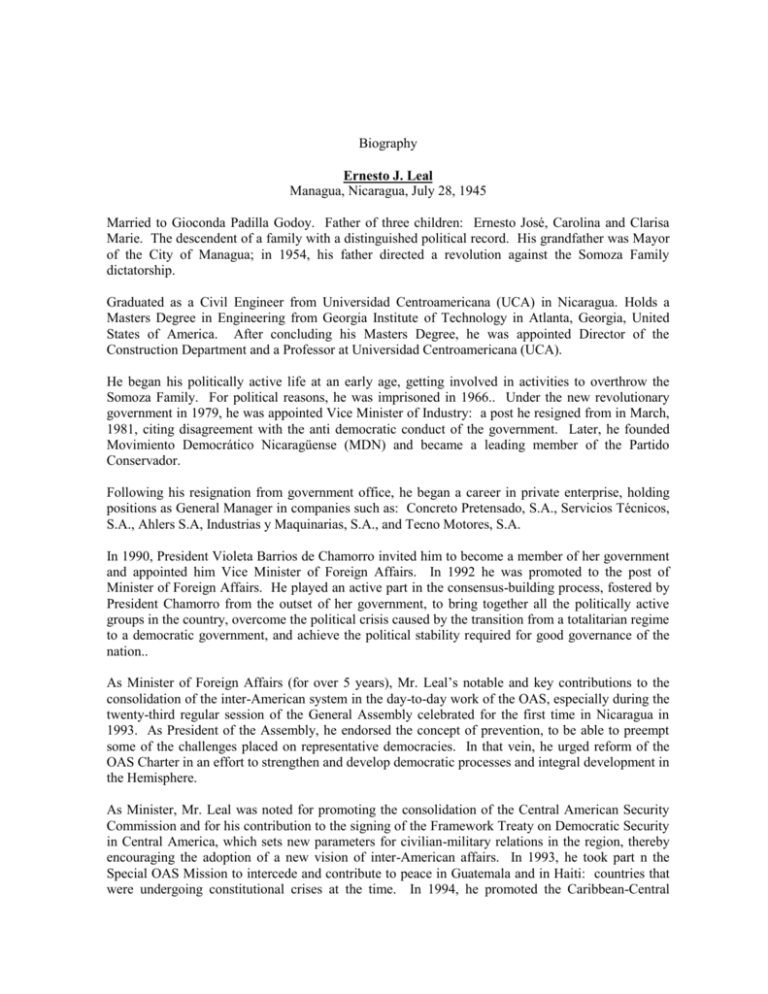
Biography Ernesto J. Leal Managua, Nicaragua, July 28, 1945 Married to Gioconda Padilla Godoy. Father of three children: Ernesto José, Carolina and Clarisa Marie. The descendent of a family with a distinguished political record. His grandfather was Mayor of the City of Managua; in 1954, his father directed a revolution against the Somoza Family dictatorship. Graduated as a Civil Engineer from Universidad Centroamericana (UCA) in Nicaragua. Holds a Masters Degree in Engineering from Georgia Institute of Technology in Atlanta, Georgia, United States of America. After concluding his Masters Degree, he was appointed Director of the Construction Department and a Professor at Universidad Centroamericana (UCA). He began his politically active life at an early age, getting involved in activities to overthrow the Somoza Family. For political reasons, he was imprisoned in 1966.. Under the new revolutionary government in 1979, he was appointed Vice Minister of Industry: a post he resigned from in March, 1981, citing disagreement with the anti democratic conduct of the government. Later, he founded Movimiento Democrático Nicaragüense (MDN) and became a leading member of the Partido Conservador. Following his resignation from government office, he began a career in private enterprise, holding positions as General Manager in companies such as: Concreto Pretensado, S.A., Servicios Técnicos, S.A., Ahlers S.A, Industrias y Maquinarias, S.A., and Tecno Motores, S.A. In 1990, President Violeta Barrios de Chamorro invited him to become a member of her government and appointed him Vice Minister of Foreign Affairs. In 1992 he was promoted to the post of Minister of Foreign Affairs. He played an active part in the consensus-building process, fostered by President Chamorro from the outset of her government, to bring together all the politically active groups in the country, overcome the political crisis caused by the transition from a totalitarian regime to a democratic government, and achieve the political stability required for good governance of the nation.. As Minister of Foreign Affairs (for over 5 years), Mr. Leal’s notable and key contributions to the consolidation of the inter-American system in the day-to-day work of the OAS, especially during the twenty-third regular session of the General Assembly celebrated for the first time in Nicaragua in 1993. As President of the Assembly, he endorsed the concept of prevention, to be able to preempt some of the challenges placed on representative democracies. In that vein, he urged reform of the OAS Charter in an effort to strengthen and develop democratic processes and integral development in the Hemisphere. As Minister, Mr. Leal was noted for promoting the consolidation of the Central American Security Commission and for his contribution to the signing of the Framework Treaty on Democratic Security in Central America, which sets new parameters for civilian-military relations in the region, thereby encouraging the adoption of a new vision of inter-American affairs. In 1993, he took part n the Special OAS Mission to intercede and contribute to peace in Guatemala and in Haiti: countries that were undergoing constitutional crises at the time. In 1994, he promoted the Caribbean-Central America Forum through meetings between Central America and CARICOM, and urged the creation of the Association of Caribbean States (ACS). One of Mr. Leal’s most important contributions was to promote and chair the II International Conference of New or Restored Democracies. which concluded with the adoption of a highly important Declaration and Plan of Action, documents that presented a totally new vision of democracy after the cold war. In 1996, he was named Secretary General of the Central American Integration System (SICA), appointed to the post unanimously by all the Central American Presidents. As the Secretary General of SICA he worked tirelessly for reform of integration institutions, such as the Central American Parliament and the Central American Court of Justice. He also achieved unification of all the specialized Secretariats in SICA and, for the first time, active participation by SICA in the Consultative Groups of the donor community. In 2002, Mr. Leal was invited by President Enrique Bolaños to be part of his cabinet and appointed Secretary of the Presidency for Integration Affairs and Presidential Delegate for Plan Puebla Panama. In November, 2004, he was promoted to the post of Secretary of the Presidency, a position he holds today. AG02722E04

